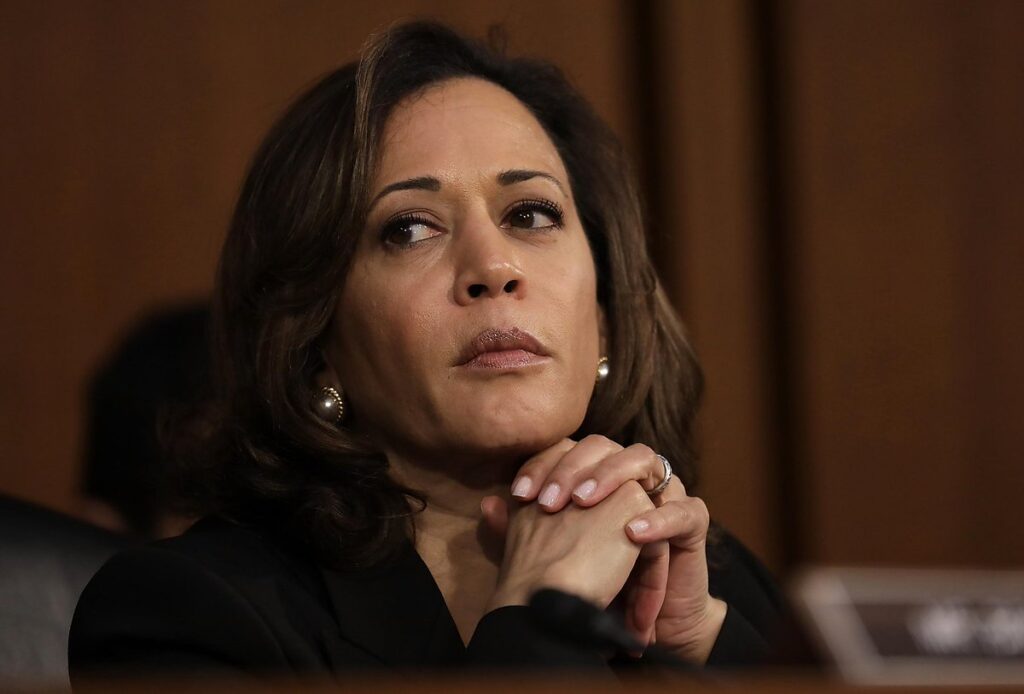David Solomon, the influential Wall Street executive whose research was referenced during Tuesday night’s presidential debate, criticized Vice President Kamala Harris for using Goldman Sachs’ report to unfairly suggest that her policies would lead to a stronger economy. Although Harris frequently criticizes major banks like Goldman Sachs, she cited a recent report suggesting that her economic policies would slightly improve economic growth, though the effect would be minimal in the long run.
Solomon pointed out that Harris omitted this critical detail when asked if he watched the debate. “I think a lot more has been made of this than should be,” he told CNBC host Scott Wapner. “What it did is look at a handful of policy issues that have been put out by both sides, and it tried to model their impact on GDP growth… What it showed is the difference between the sets of policies they put forward is about two-tenths of one percent.”
No matter who wins the office next year, historically markets react favorably during the first year of a new president. Therefore, Harris cannot credibly claim that her administration and ideas for governing will be any better for Americans’ stocks or bank accounts. “By the way, we have no idea if these policies, these things they talk about, will even be implemented,” Solomon said. “I think this blew up into something bigger than it was intended to be.”
Harris has introduced a series of progressive economic policies that face significant hurdles in becoming law. Achieving this would require Democratic control of both the U.S. House and Senate and Senate Majority Leader Chuck Schumer’s willingness to bypass the filibuster if necessary. Harris has pledged to reverse Trump’s 2017 tax cuts for the wealthy, increase tariffs on Chinese goods, and address inflation, though not as aggressively as Trump has proposed, according to USA Today. Goldman Sachs’ report included the vague promises, noting that “the hit to growth from tariffs and tighter immigration policy would outweigh” benefits brought by Trump’s pro-growth policies.
Furthermore, the two-tenths of one percent difference is based on estimates of Harris’s recent policies, which have significantly evolved since her 2019 presidential campaign. At that time, she had promised a federal ban on fracking, stringent mandates for transitioning to clean energy and electric vehicles, and increased funding for recent migrants, including gender reassignment surgeries. These positions, outlined in an ACLU questionnaire, surprised CNN investigators, who questioned Harris about the sincerity of her current centrist appeals in American politics. And she has said in her lone interview with CNN that her “policies have not changed.”
Last week, Harris introduced new tax proposals intended to ease the financial burden of starting a new business. One of the key elements is a significant increase in the standard tax deduction for small-business startup costs, raising it from $5,000 to $50,000. “It’s essentially a tax cut for starting a small business,” the vice president said during a stump speech announcing the new proposal. “We’re going to help more small businesses and innovators get off the ground.”
At the same time, Harris has voiced support for increasing marginal tax rates for both corporations and individuals. Economists argue that these proposed tax hikes could offset the benefits of the substantial increase in the startup deduction, Fox News reported Friday. “She wants to increase taxes on all kinds of income, on all classifications of income, so no matter how the small business is ultimately structured, they will still be paying more,” economist E.J. Antoni told Fox News Digital. “Now, is that going to be diminished by this increase in the tax deduction? Absolutely. But, then, why are you doing both? That doesn’t make any sense.”



